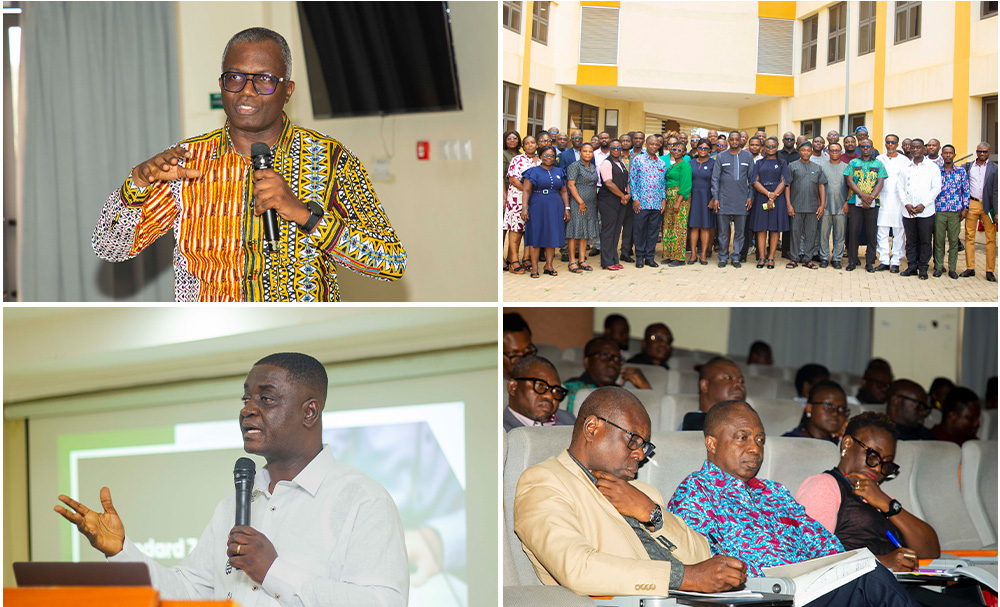The Kwame Nkrumah University of Science and Technology (KNUST), Kumasi has hosted a national HAQAA3 Dissemination Workshop to strengthen the adoption of the African Standards and Guidelines for Quality Assurance (ASG-QA) across Ghana’s tertiary institutions.
Quality Assurance Directors, Planning Officers, Registrars and Administrators from universities and colleges nationwide attended the workshop aimed at improving programme design, teaching, learning and assessment frameworks.
Prof. Daniel Agyei-Boateng, Dean of Quality Assurance and Planning Office (QAPO) urged institutions to deepen networking and peer learning to enhance accountability and performance.
“We are here to network, to collaborate, and engage with GTEC to further improve success,” he said.
Prof. Jerry John Kponyo, Director of the Office of Grants and Research emphasised the need for quality assurance leaders to keep pace with rapid technological developments.
He recommended that similar workshops be institutionalised to maintain relevance and momentum.
The workshop featured two technical presentations by former director of the KNUST E-Learning Centre Prof. Eric Appau Asante, who highlighted the need for Africa-focused standards fully aligned with global best practices.
His first presentation, based on Standard 7, addressed programme design, approval, monitoring and evaluation.
He warned that curriculum design in many African institutions remains misaligned with labour market needs.
“Programmes are often designed without strong engagement from employers, regulators, or alumni,” he said, citing overloaded content-heavy courses and weak constructive alignment as persistent challenges.
He called for a shift from programme survival to programme excellence and from teacher-centred delivery to learner-centred learning.
“If we get programme design right, everything in the university improves,” he added.
A second presentation on Standard 8 focused on teaching, learning and assessment. Prof. Asante stressed the importance of continuous evaluation of teaching practices to ensure relevance and impact.
“It should be student-centred, it should be flexible and it should motivate the learner to learn very well,” he said.
He clarified that the standards are not intended as rigid rules, but as shared institutional responsibility.
“It is not setting up rules, but about ensuring that people have responsibility in the standard and applying it to improve teaching, strengthen learning and ensure honest assessment,” he noted.
Former Head of Monitoring and Evaluation at QAPO, Prof. Samuel Andam-Akorful also presented on mechanisms for student assessment of lecturers, followed by a moderated open forum on issues requiring further engagement with GTEC.
Participants described the workshop as timely and insightful, saying the ASG-QA Standards provide a coherent and practical framework for strengthening programme development, teaching practices, assessment systems and overall institutional credibility.

















